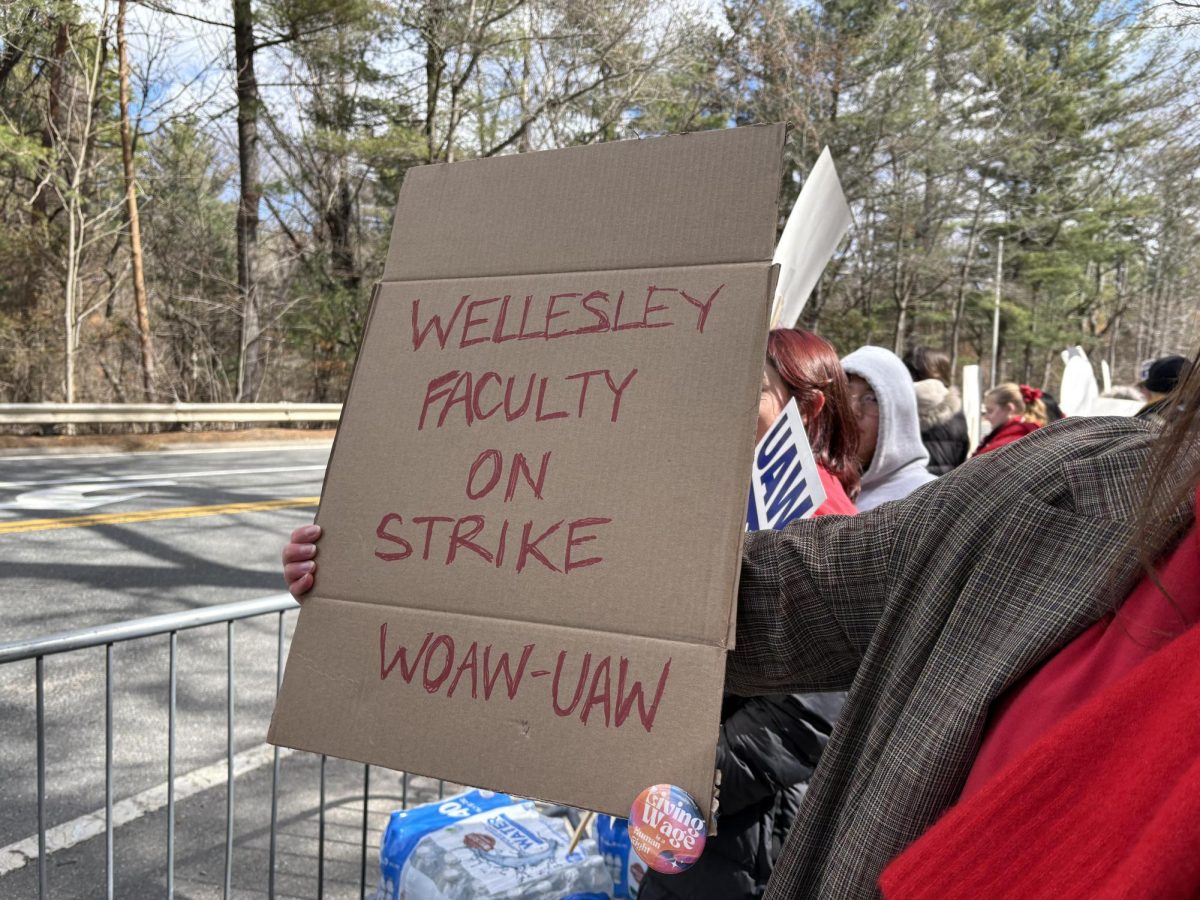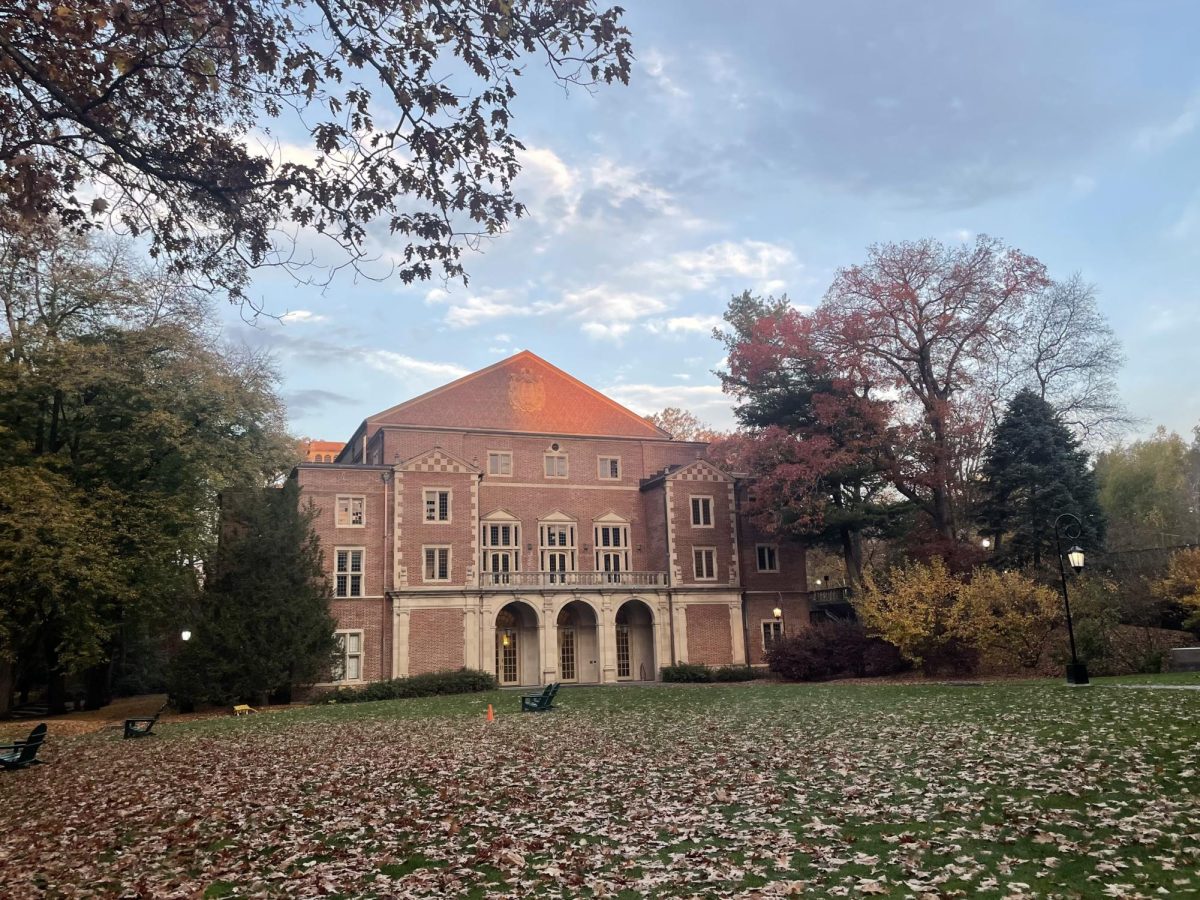Provost Courtney Coile said the College’s current plan to cap course units and reopen registration is a “back-up” for students to comply with federal laws of contact and credit hours, in an interview with the News Friday.
The College has yet to implement the cap in units.
“I just want to assure everyone we’re not making any changes right now, all classes are staying on the books exactly as they are,” said Coile.
However, the College’s back-up plan for students begins on Saturday. The College said they are focused on a plan providing additional half-credit unit opportunities so students can register on Saturday to start classes on Monday to avoid falling below full-time status. They are also communicating with instructors on how they should award the half-unit of credit.
“Our hope is that the strike would end very quickly and we can unwind this backup plan that we’ve been putting in place and everyone can just go continue attending the courses they’re enrolled in and earn full credit,” said Coile.
Federal regulations
Federal regulations regarding college accreditation hinge on what are known as “contact hours” — the time students spend receiving direct classroom instruction from faculty members.
The College generally measures credit in quarter unit intervals, which can either be a half credit or one credit. The College does not award 0.75 unit.
Coile said the courses that continue without a faculty member present do not qualify as contact hours and cannot be counted toward the total meeting time required for academic credit, according to federal guidelines.
About five years ago, the College revised its class schedule to comply with updated accreditation standards, according to Coile. Classes, which previously met for 140 minutes per week, were extended to 150 minutes to meet the new requirements.
Coile emphasized the importance of the College following these federal requirements.
“It is something that gets reviewed — whether the College is in compliance with these minimum meeting times — and explicitly examined when we go through this regular review process to maintain our accreditation,” said Coile.
Academic life in question
Under the said “back-up plan”, students will receive grades based on past assignments and the decision of department chairs in the suspended classes taught by striking faculty. This may mean students cannot improve their grades through later assignments and their finals.
Coile reiterates hopes for a short strike so the College can unwind this plan they have.
“People can get back in their classes and have the opportunity to follow the original syllabus and with the assignments and exams that are still to come,” said Coile.
The current situation also raised a complicated question on whether the College can still award full credit based on the contact hour if the strike ends earlier and the College reverts to normal academic instruction methods after the strike ends.
Coile said the College doesn’t have a precise answer for now on measuring hours if the strike ends by a specified date, given many courses are idiosyncratic and met for different amounts of time.
“It will depend on exactly how many minutes the class has already met,” said Coile. “We’ll need to look at all that carefully at a later date and make sure that the amounts of credit that we’re awarding are really the right level, given the amount of work.”
However, since students enroll in a class mid-way and receive no prior instruction on the course they are joining for five weeks, it is unclear how agencies and education commissions may view the quality of contact hours received in those five weeks.
Some classes offered for registration include 300-level classes on real analysis and neurobiology and seminars that require prerequisites and significant knowledge. Even with a mandatory credit-non grading basis, it is unclear how students will perform in these classes.
Mark Nicholas, Vice President at the New England Commission of Higher Education (NECHE), which awards Wellesley’s accreditation, told the News in a phone interview that the Commission is aware of the situation. The Commission will go through with its formal process on complaints filed against the College based on its policy.
The Commission will review complaints and determine if they meet its nine criteria to proceed. If they do, it will ask the College to provide a response in 30 working days.
Dr. Larry Schall, the President of NECHE, wrote that interested parties can file a complaint or a public comment. It would issue decisions after it convenes and makes decisions, which it does four times a year.
The College has two bargaining sessions with WOAW slated for next Tuesday and Thursday.
Contact the editors responsible for this story: Galeta Sandercok, Sazma Sarwar





Patrick Walsh | Mar 28, 2025 at 9:42 pm
Now they’re calling it a back up plan…
Unfortunately the board has been given very poor guidance. Hopefully the board and the president has not been making these decisions on their own, and they have been relying on their legal council. If so, they should be fired.
To think, this is supposed to be higher education…